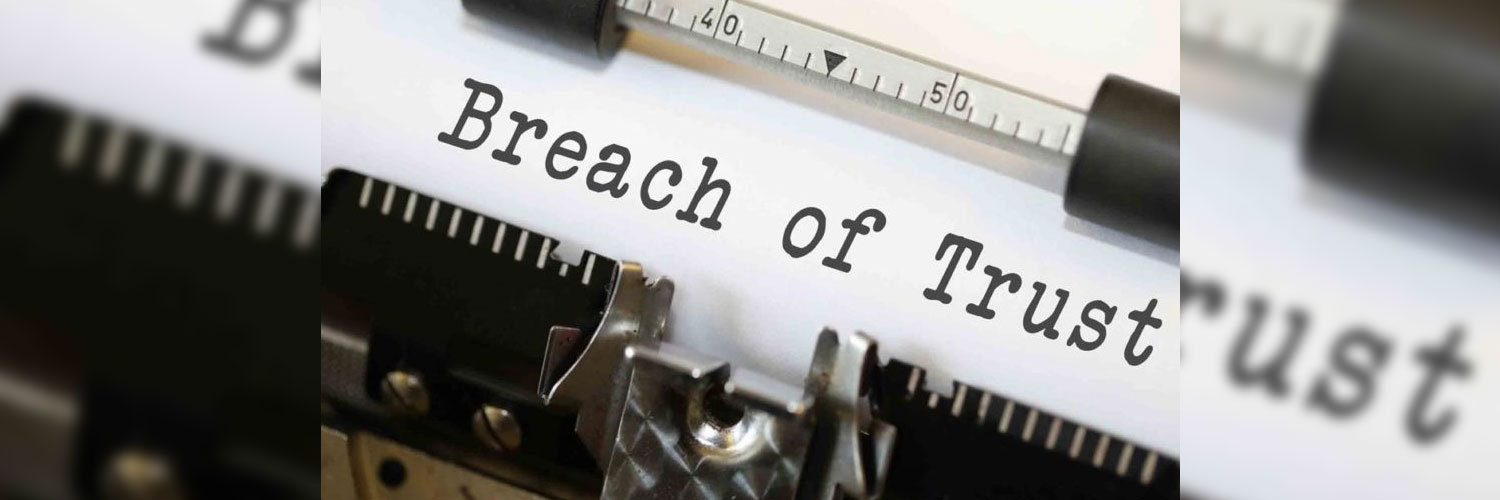What Is Criminal Breach Of Trust – Section 405 IPC
The offence of Criminal Breach of Trust – section 405 IPC is similar to the offence of embezzlement under the English law. A reading of the section suggests that the gist of the offence of criminal breach of trust is ‘dishonest misappropriation’ or ‘conversion to own use’ another’s property. It is nothing but the offence of criminal misappropriation defined under section 403. The only difference between the two is that in respect of criminal breach of trust, the accused is handed over with the property or with the power or control over the property. Undoubtedly, it takes a work of genius to understand the intricacies of the criminal law regarding criminal breach of trust. The best advocate for criminal law and a top criminal lawyer for Criminal Breach of Trust – section 405 IPC would always objectively inspect the following elements of the section;
Ingredients of Criminal Breach of Trust
1. Entrustment with the property or entrustment with any dominion over property.
2. Person entrusted:
a) dishonestly misappropriates that property
b) or converts to his own use,
c) or dishonestly uses that property
d) or disposes of that property
e) or willfully suffers any person.
3. In violation –
a) of any direction of law prescribing the mode in which such trust is to be discharged,
b) Or of any express or implied legal contract, which is made for the discharge of such trust.
For the purpose of Criminal Breach of Trust – section 405 IPC;
Entrustment
Necessary meaning is handing over the possession of that property for some purpose which may not imply conferring proprietary rights.
To make it an offence there must be misappropriation by a person in whom confidence is placed.
Property
Maybe movable property or immovable
It must be one which belonged to the complainant
It doesn’t matter that the complainant is the owner of it or not.
Dominion Over The Property
a) When a person supervises or exercises his control over the property
b) Or he/she is in charge of that property.
Dishonestly misappropriates or converts for his own use
The dishonest intention is the essence of this offence. Mere retention of the goods by a person without misappropriating does not amount to the criminal breach of trust. (Pratibha ram v. Suraj Kumar)
Dishonestly uses or disposes of that property:
1. following four positive acts are necessary :
i. misappropriation,
ii. conversion,
iii. the user,
iv. Disposal of the property.
2. Substantial loss or appreciable loss to the owner or gain to the accused must be there.
Trust:
An obligation towards the ownership of property arising out of confidence to manage for the benefit of others.
Wilfully suffers any other person to do so:
Acts done have been done deliberately or intentionally and not by accident or non-intentionally.
Violation of legal contract:
A person takes a scooter on hire for 7 days further gave that scooter to Z. Z further pledges with P against a loan of Rs. 500 returned the scooter after 5 months. A person is liable for criminal breach of trust in violation of the contract.
Explanation 1:
A person, being an employer 3 who deducts and withdraw the employee’s contribution from the wages payable to the employee for credit to a Provident Fund or Family Pension Fund established by any law for the time being in force, shall be deemed to have been entrusted with the amount of the contribution so deducted by him and if he makes default in the payment of such contribution or input to the said Fund in breach of the said law, shall be deemed to have dishonestly used the amount of the said input in violation of a direction of law as aforesaid.
Explanation 2:
A person, being an employer, who deducts the employees’ contribution from the wages payable to the employee for credit to the Employees’ State Insurance Fund held and conducted by the Employees’ State Insurance Corporation established under the Employees’ State Insurance Act, 1948 (34 of 1948), shall be deemed to have been entrusted with the amount of the contribution so deducted by him and if he makes omission/default in the payment of such grant to the said Fund in violation of the said Act, shall be deemed to have dishonestly used the amount of the said contribution in violation of a direction of law as aforesaid.
Illustrations
A is a warehouse-keeper. Z going on a journey handed over his furniture to A, under a contract that it shall be returned on payment of a specified sum for warehouse room. A dishonestly sells the goods. A has committed criminal breach of trust.
| CRIMINAL BREACH OF TRUST | CRIMINAL MISAPPROPRIATION |
| 1.Conversion of property which was entrusted to him | 1. The possession of the property may come in any way |
| 2. There is contractual relationship either express or implied. | 2.No contractual relationship |
| 3. Offender here is lawfully entrusted with property which he dishonestly misappropriates or uses. | 3. Property comes into possession to the offender by some causity/accidentally and then it is converted by him or for his own use. |
CONCLUSION
To conclude, it can be said that when a person faces criminal charges of such nature, it becomes extremely important to seek assistance and support of the best advocate for the criminal law. Also, the best Advocate for Criminal Law needs to be very watchful of all the ingredients of the section while examining a case of criminal breach of trust as it majorly depends on the understanding and hard work of the advocate as to where the fate of the client shall lie.






